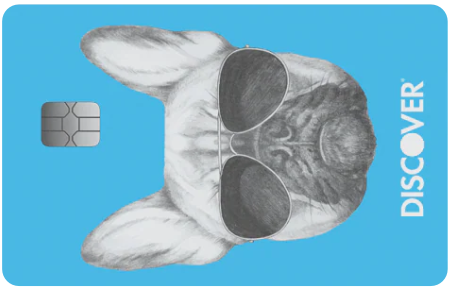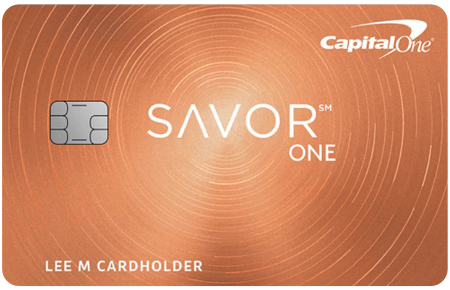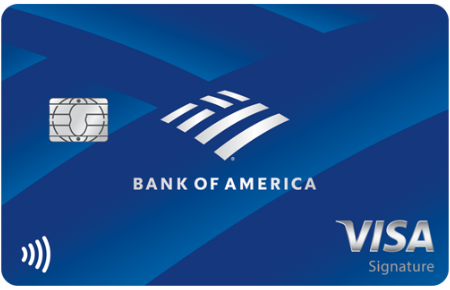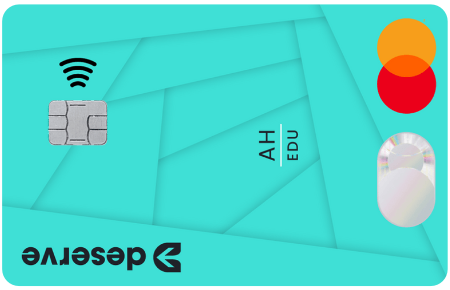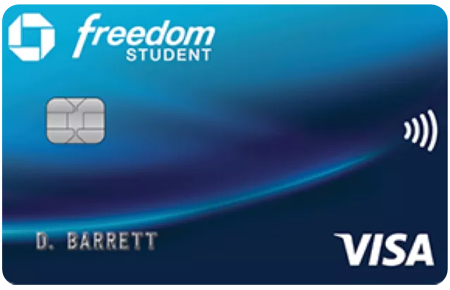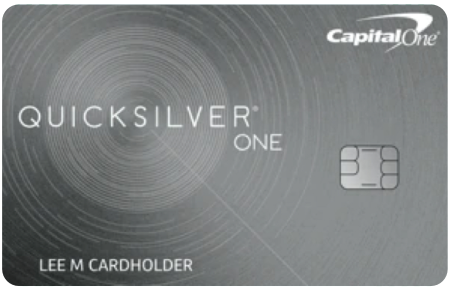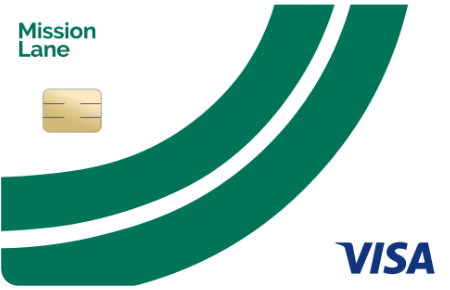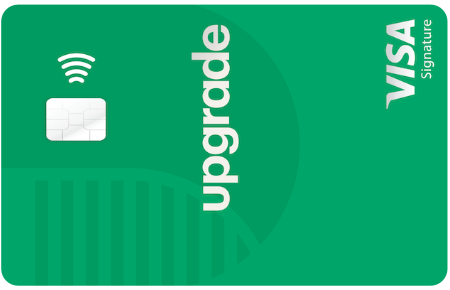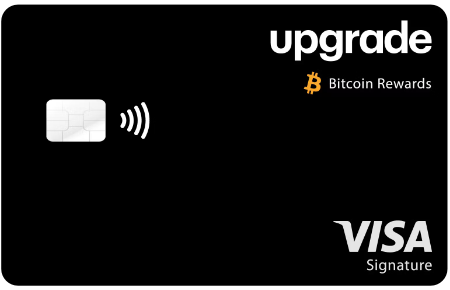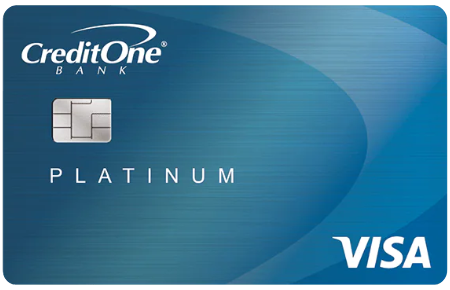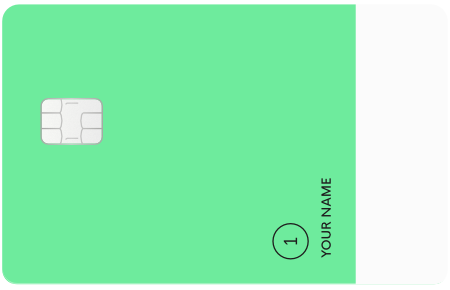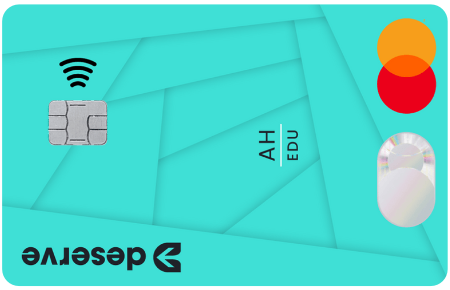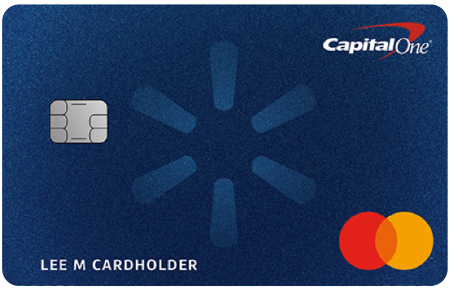10 Best Cash Back Credit Cards For Fair Credit Consumers
Applying for new credit cards can be tough when you have a relatively low credit score. Even if you qualify for a card that you want, the terms and conditions will not be very favorable.
Our team of experts gathered the ultimate list of credit cards that suit a variety of people, regardless of your credit score and history. If you are ready to find the most beneficial credit card for your situation, keep reading this article to learn everything you need to know.
The Best Cash Back Credit Cards
While this may not seem like a major issue at first, factors like high APR and hidden fees could make it far easier to fall into a vicious cycle of credit card debt. For this reason, many consumers with a fair credit score want to find the best cash back credit cards available to them.
A cash rewards credit card will earn you some money back on many or all of your purchases. While this will not completely offset your interest payments — especially if you have a high APR and you maintain a balance on your card — it will put actual money back in your pocket. This, in turn, will make it easier to pay down your debt and improve your credit score over time.
10 Best Cash Back Credit Cards For Fair Credit Consumers
- QuickSilverOne From Capital One
- SavorOne Rewards For Students
- Discover it Student Cash Back
- Mission Lane Cash Back Visa Credit Card
- Upgrade Cash Rewards Visa
- Upgrade Bitcoin Rewards Visa Credit Card
- Credit One Bank Platinum Visa For Rebuilding Credit
- Petal 1 Visa Credit Card
- Deserve EDU Mastercard for Students
- Capital One Walmart Rewards Card
What Does “Fair” Credit Really Mean?
According to Experian, roughly 17% of American adults have “fair” credit scores. [1] Though some credit bureaus and experts differ on what they consider to be “fair” credit, you can generally use the following chart to see where your credit score lands:
| CREDIT SCORE | RATING | EFFECT |
|---|---|---|
| 300 – 579 | Poor | You may be disqualified from getting any unsecured credit |
| 580 – 669 | Fair | Your credit is considered subpar, making it more difficult to get competitive rates or qualify for better credit cards |
| 670 – 739 | Good | Your credit is in good standing and you can qualify for most credit cards and loans with competitive terms |
| 740 – 799 | Very Good | You can qualify for even better terms on credit cards and loans |
| 800 – 850 | Exceptional | You can generally qualify for the best available terms on credit cards and loans |
It is important to note that there can be some variation in the numbers and categories in the table above. For example, you may have a score of 675, and one or more of the three major credit bureaus can still classify your credit as “fair.” Therefore, it stands to reason that there are even more Americans with poor or fair credit than previously imagined.
The Importance of Improving Your Credit
Americans are uniquely positioned to take advantage of opportunities to get credit and make investments for their futures. However, just because you can get credit does not mean you should. Whether you are applying for a personal loan or a new credit card, you need to be aware of the financial implications and responsibilities required.
This is why it is important to understand the value of good credit. People assume they need to acquire credit and use it to improve their credit scores. While this is true, it does not paint a complete picture of how credit works and how hard you should work to improve your credit.
Building Credit As A Senior
For instance, many seniors on fixed incomes make sacrifices to their daily needs just to make credit card payments on time and maintain a good credit score. However, the truth is that most types of senior retirement income are protected from being taken by creditors. Moreover, the vast majority of seniors do not need high credit because they have already paid off their homes and do not plan to make any more large purchases in their lives. Therefore, building credit as a retired senior can actually do more harm than good.
Looking Beyond Your Credit Score
A person in their late-20s or early-30s will need decent credit if they plan to buy a car, get a mortgage on a house, or get a loan to start a small business. While building your credit score using personal credit cards is a great start, it does not guarantee that you will be able to get the type of credit you want or need.
A common issue that many people run into is a lack of credit diversity. It is often assumed that having one or two credit cards that are in good standing will suffice. However, if you want to lease a car, you may be surprised to find that many lenders will deny your application, even if you have good credit. Why? Because you have no history of using auto loans in the past.
In addition to credit diversity, you also need to think about your debt-to-income (DTI) ratio. This ratio is usually expressed as a percentage, and it reflects the level of debt you have compared to your regular annual income. For example, let’s say that you currently have an annual salary of $50,000 and are working to pay down $40,000 in credit card debt. This would mean that you have a DTI of 80%.
A DTI of 43% or below is considered healthy. Many lenders will also accept DTIs up to 50%, but having a DTI of 80% is considered very risky. It means that a large portion of your annual income is just going toward debt repayment. If you want to get a mortgage, you will have a very hard time finding a lender until you have paid down your debt. So, even if you have a good credit score, you may be prevented from getting the type of credit you want because of poor spending habits.
What To Do To Build Your Credit
As you can see, there is a lot more to your credit profile than just your credit score. Consequently, it is best to take a multifaceted approach to building credit. Here are a few tips to help you build your credit without biting off more than you can chew:
Don’t apply for credit cards just because you can. To build credit, it is a good idea to have at least one credit card that is active and in good standing. However, you should not take on more credit cards than you can manage. As a general rule, the average consumer should not have more than two or three credit cards at once.
Always make your payments on time. Whether you have an auto loan, credit cards, or even utility bills, you should do your best to always make on-time payments. This is one of the most important factors when calculating your credit score.
Don’t take on more debt than you can handle. You should consistently try to keep your total debt below 50% of your annual income, especially if you want to apply for a home mortgage in the future. Even if you don’t plan on getting a mortgage, keeping a low DTI can improve your overall credit rating and make it easier to apply for new lines of credit as needed.
Keep your credit card balances below 30% of your total credit limit. It can be tempting to use credit cards regularly if you have plenty of available credit, but this is not a sound financial decision. Instead, you should routinely pay down your credit cards so that you are not using more than one-third of your total credit limit at any given time.
Diversify your credit history. If you have the capacity to take on debt, you should consider options beyond regular credit cards. For example, taking out a personal loan, business loan, auto loan, or mortgage will show banks and credit bureaus that you have a history of managing different kinds of credit responsibly.
What Is a Cash Back Credit Card?
Now that you know a little bit more about the many factors that can affect your credit, it is time to look at cash back credit cards and how they can actually play a role in your journey to improve your credit. Essentially, a cash rewards credit card is any secured or unsecured credit card that offers cash rewards on purchases. For example, one credit card may offer you 1% cash back on all credit card purchases, while another might offer you 5% cash back on dining, travel, or other purchases.
The truth is that cash back credit cards come in all shapes and sizes (so to speak). Since people like to think they are getting a little bit of money back on some or all of their purchases, cash back rewards have become an increasingly popular benefit offered by banks and credit card companies. And as we will discuss below, they can even help you work to improve your credit over the long term.
What Credit Score Do I Need to Qualify For a Cash Back Credit Card?
Fortunately, there is no minimum credit score to qualify for a cash rewards credit card. Why? Because there are hundreds of different cash back cards on the market. Some of these are specifically designed for people with bad credit (like secured credit cards); others are designed for people with excellent credit — with lots of cards for everyone in between. Therefore, even if you have a “fair” credit score (580 – 569), you can still qualify for dozens of different cash back rewards cards.
How Can Cash Back Credit Cards Help Improve My Credit?
If your credit score is in the fair range, you probably want to work on improving it. This may not apply to everyone, but generally, having fair credit health will make it harder to get credit cards and loans with the best terms. Thankfully, cash back credit cards offer you the ability to make back a small portion of what you spend.
Naturally, you still need to practice fiscal responsibility. For example, if you’re only getting back 1% on your purchases and you have an APR of 21.99%, you will be spending far more in interest than you make in cash back rewards. Therefore, you can actually improve your score and put money back in your wallet by using your credit card responsibly. You just have to make sure that you pay off these purchases before they have time to accrue interest.
10 Best Cash Back Credit Cards For Fair Credit Applicants
If you’re willing to practice good financial habits, a cash back credit card can really help take you from a fair credit score to an excellent credit score. But which cash back cards are best for fair credit applicants? Check out our list of the ten best cash back credit cards below to find out!
QuickSilverOne From Capital One
The QuickSilverOne credit card from Capital One is designed specifically for consumers with fair credit scores. Additionally, you can apply without getting a hard pull on your credit report, so you don’t need to worry about your score dropping during the application process. The QuickSilverOne card is ideal for applicants who want decent cash back rewards on everyday purchases. However, you should keep in mind that this card does come with a high APR and an annual fee of $39. Both of these costs will take away from your rewards, especially if you plan to keep a balance on your card.
- Annual Fee: $39
- Sign-Up Bonus: None
- Intro APR: 28.49% (Variable)
- Recommended Credit Score: 580 and above
- Rewards: 1.5% cash back on all purchases
- Additional Benefits: Automatic credit limit reviews and a free credit profile with CreditWise
- Best For: Consumers who can pay off their balance quickly
Pros
Cons
SavorOne Rewards For Students
The SavorOne Rewards card helps students get access to credit and cash back benefits without needing good credit. It is important to note that you must be currently enrolled or planning to enroll in a college or university to qualify for this card. Nonetheless, it offers great cash back rewards on common purchases, as well as access to a suite of Capital One travel programs and benefits, including 24-hour travel assistance, free concierge service, and travel accident insurance. On top of all that, you can even qualify for a $100 sign up bonus if you apply online.
- Annual Fee: $0
- Sign-Up Bonus: $100 bonus if you sign up through the Capital One website
- Intro APR: 17.99% – 27.99% (Variable)
- Recommended Credit Score: 580 and above
- Rewards: 3% cash back on dining, groceries, entertainment, and streaming services
- Additional Benefits: No transfer fees on balance transfers
- Best For: Students with fair credit scores
Pros
Cons
Discover it Student Cash Back
The Discover it Student Cash Back card gives students the ability to earn huge cash rewards on everyday purchases. Not only can you get 1% cash back on all purchases, but you can get a whopping 5% cash back at grocery stores, gyms, and gas stations. Additionally, the Discover it Student Cash Back card is ideal if you frequently shop online, as you can get 5% cash back when you use Paypal, Amazon, or various digital wallets to complete your purchase. Finally, you can save on interest with six months of 0 intro APR.
- Annual Fee: $0
- Sign-Up Bonus: None
- Intro APR: 0 intro APR for the first six months, then 15.99% – 24.99% (Variable)
- Recommended Credit Score: N/A
- Rewards: 5% cash back at grocery stores, gyms, gas stations, Paypal, and Amazon; plus 1% cash back on all purchases
- Additional Benefits: Unlimited cash back match at the end of the first year
- Best For: Students who regularly shop online
Pros
Cons
Mission Lane Cash Back Visa Credit Card
The Mission Lane Cash Back Visa Credit Card helps people with poor or fair credit rebuild their credit scores with ease. You can apply quickly and get an answer in seconds, which makes this card more appealing for people who want a credit card quickly. In addition to the fast sign-up process, you also get 1% cash back on all of your purchases and access to your credit score whenever you need it. However, you will need to pay a $19 annual fee to keep your account open, which will take away from your cash back rewards.
- Annual Fee: $19
- Sign-Up Bonus: None
- Intro APR: 26.99% (Variable)
- Recommended Credit Score: 500 and above
- Rewards: 1% cash back on all purchases
- Additional Benefits: Free online credit scores
- Best For: Consumers who want to rebuild their credit scores
Pros
Cons
Upgrade Cash Rewards Visa
The Upgrade Cash Rewards Visa card gives people with fair to average credit the ability to get a high-quality cash back rewards card. You get 1.5% cash back on every purchase, as well as the ability to qualify for $200 if you sign up for a Rewards Checking account at the same time. Compared to most cash back credit cards, the Upgrade Cash Rewards Visa credit card also boasts competitive variable APRs based on your credit score.
- Annual Fee: $0
- Sign-Up Bonus: Up to $200 cash rewards if you sign up for a Rewards Checking account
- Intro APR: 14.99% – 29.99% (Variable)
- Recommended Credit Score: 620 and above
- Rewards: 1.5% cash back on all purchases (once payments have been made)
- Additional Benefits: Credit lines ranging from $500 to $25,000
- Best For: Consumers who fair to average credit
Pros
Cons
Upgrade Bitcoin Rewards Visa Credit Card
The Upgrade Bitcoin Rewards Visa Credit Card comes with all of the same features and terms as the standard Upgrade Cash Rewards Visa — with one major exception. As the name implies, this card pays out cash back deals in Bitcoin. If you want to invest in cryptocurrency or simply prefer the opportunity to get your cash back rewards in Bitcoin, this is one of the best cash back credit cards for you.
- Annual Fee: $0
- Sign-Up Bonus: Earn cash rewards up to $200 if you sign up for a Rewards Checking account
- Intro APR: 14.99% – 29.99% (Variable)
- Recommended Credit Score: 620 and above
- Rewards: 1.5% cash back (in Bitcoin) on all purchases, once payments have been made
- Additional Benefits: Credit lines ranging from $500 to $25,000
- Best For: Consumers who want to receive cryptocurrency
Pros
Cons
Credit One Bank Platinum Visa For Rebuilding Credit
The Credit One Bank Platinum Visa For Rebuilding Credit is exactly what it sounds like: a credit card designed to help you rebuild poor or fair credit over time. As an added bonus, this card gets you 1% cash back on common purchases like gas and groceries, as well as recurring bills for mobile phone service, internet, and cable. If you shop at certain retailers, you could even be eligible for 10% cash back deals. However, you will need to remember that this card has an annual fee starting at $75 for the first year. This annual fee gets bumped up to $99 starting one year from the account opening.
- Annual Fee: $75 for the first year, $99 annually after that
- Sign-Up Bonus: None
- Intro APR: 26.24% (Variable)
- Recommended Credit Score: 500 and above
- Rewards: 1% cash back on eligible purchases, including gas, groceries, mobile phone, internet, and cable
- Additional Benefits: 10% cash back available on select retailers
- Best For: Consumers who want to focus on rebuilding their credit
Pros
Cons
Petal 1 Visa Credit Card
The Petal 1 Visa Credit Card offers some of the best cash back deals to consumers with fair credit scores. You can get as much as 10% cash back by shopping with select merchants. Additionally, you can take your card abroad and make purchases with absolutely no foreign transaction fees. However, the Petal 1 Visa Credit Card also comes with a wide range of APRs, so if your credit score is relatively low, you may have to pay a lot more in interest.
- Annual Fee: $0
- Sign-Up Bonus: None
- Intro APR: 22.99% – 32.49% (Variable)
- Recommended Credit Score: 580 and above
- Rewards: Between 2% and 10% cash back at select merchants
- Additional Benefits: No foreign transaction fees
- Best For: Consumers with fair credit who want to travel
Pros
Cons
Deserve EDU Mastercard for Students
The Deserve EDU Mastercard for Students is a great starter card for students, particularly students who plan to travel or study abroad. You can get up to 1% cash back on eligible purchases, no foreign transaction fees, and even protection for your mobile phone. Plus, the Deserve EDU Mastercard for Students offers up to $69 in reimbursements for an Amazon Prime Student subscription.
- Annual Fee: $0
- Sign-Up Bonus: None
- Intro APR: 21.74% (Variable)
- Recommended Credit Score: 580 and above
- Rewards: Up to 1% cash back on eligible purchases
- Additional Benefits: No foreign transaction fees, $69 Amazon Prime Student statement credit
- Best For: Students who plan to travel
Pros
Cons
Capital One Walmart Rewards Card
The Capital One Walmart Rewards Card offers a great opportunity for people who frequently shop at Walmart for groceries, clothes, cleaning products, or any other items to save money. It is especially useful if you shop on Walmart.com, as you can get up to 5% cash back on your entire order, including pick up and delivery fees. Additionally, the Capital One Walmart Rewards Card lets you check your balance and pay your bill in one easy-to-use mobile app.
- Annual Fee: $0
- Sign-Up Bonus: None
- Intro APR: 17.99% – 27.74% (Variable)
- Recommended Credit Score: 620 and above
- Rewards: 5% cash back on Walmart.com, 2% cash back at Walmart stores, and 1% cash back on all purchases
- Additional Benefits: Convenient mobile app
- Best For: Consumers who frequently shop at Walmart
Pros
Cons
Frequently Asked Questions About The Best Cash Back Credit Cards
This largely depends on how you shop and your credit score. For example, if you are a student with fair credit, there are several great options on the market. Alternatively, if you are working to rebuild your credit, there are different options out there to meet your needs. Therefore, it all depends on your particular circumstances; make sure to do your research before deciding on a credit card.
Generally speaking, yes, cash back cards can be a good idea. They can help you put a little bit of money back in your pocket on some or all of your purchases. However, you should always remember that these cash back deals will not offset the cost of interest. So, if you want to get the most out of your cash back credit card, ensure that you pay down your balance as soon as possible and practice responsible spending habits.
Both the Discover it Student Cash Back Card and the Capital One Walmart Rewards Card offer 5% cash back on many types of purchases. If you want a card that gives you 5% cash back on every purchase, you may struggle to find anything available on the market. This is because giving such a high percentage in cash back deals can significantly take away from a card provider’s profits.
What Type Of Cash Back Credit Card Suits Your Situation Best?
Compare the best cash back credit cards in the overview above.
